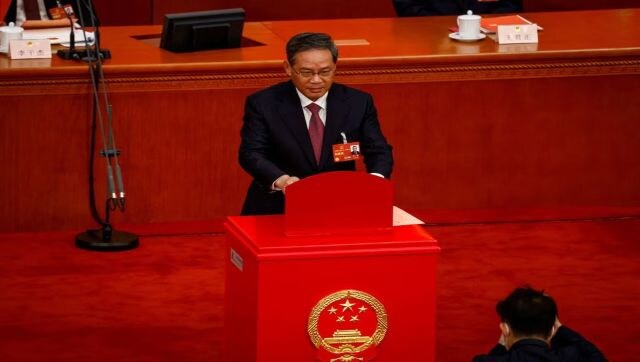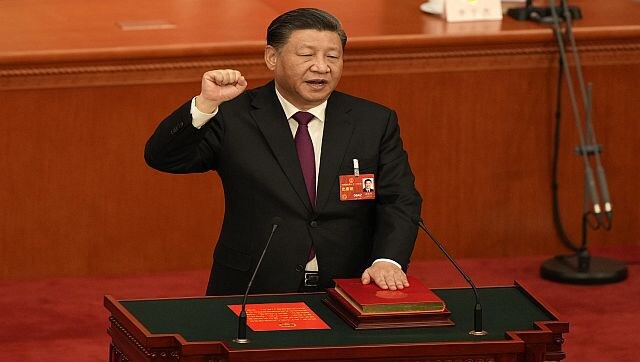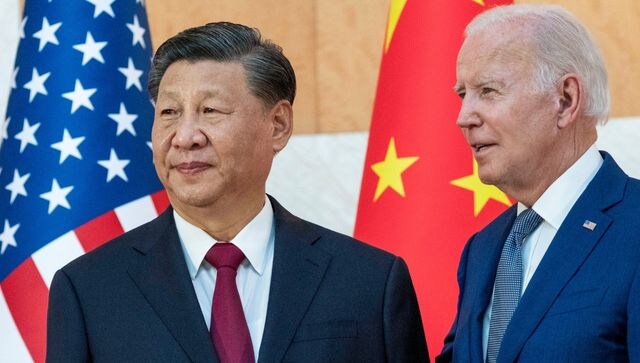Xi Jinping names Li Qiang as China’s new Premier
Chinese president Xi Jinping on Saturday nominated Li Qiang, 63, to become the country's premier during the continuing annual meeting of China’s rubber-stamp parliament, according to a report

Member of the Politburo Li Qiang casts his vote during the Third Plenary Session of the National People's Congress (NPC) at the Great Hall of the People, in Beijing, China, on Friday. Reuters
New Delhi: Chinese president Xi Jinping on Saturday nominated Li Qiang, 63, to become the country’s premier during the continuing annual meeting of China’s rubber-stamp parliament, according to a report.
According to Xinhua news agency, Li Qiang will replace Li Keqiang, who became premier in 2013 amid high hopes he would usher in liberal reforms. But his power was curbed by Xi, who increasingly sidelined Li Keqiang and placed allies in key strategic positions over him.
Li Qiang is the former Communist party chief of Shanghai, China’s largest city. Li Keqiang is retiring during the National People’s Congress session that ends on Monday, after serving two five-year terms.
Li Qiang is a close ally of Xi, serving as his chief of staff between 2004 and 2007, when Xi was provincial party secretary of eastern China’s Zhejiang province.
He was put on track for premier in October, when he was appointed to the number-two role on the politburo standing committee during the Communist party congress, held every five years.
Widely perceived to be pragmatic and business-friendly, the incoming Li faces the daunting task of shoring up China’s uneven economic recovery after three years of COVID-19 curbs, weak confidence among consumers and the private sector, and global headwinds.
He will take office amid rising tensions with the West, including US moves to block China’s access to key technologies and as many global companies diversify supply chains to hedge their China exposure, given political risks and the disruptions of the COVID era.
Xi is installing a slate of loyalists in key positions amid the biggest government reshuffle in a decade, as a generation of more reform-minded officials retires and Xi further consolidates power after being elected president for an unprecedented third term on Friday.
On Friday, the National People’s Congress (NPC), a largely ceremonial legislature, unanimously endorsed Xi, 69, with all of its 2,952 present members casting votes in favour of his reappointment, and none abstaining or opposing.
While Xi’s selection was a foregone conclusion — he was already appointed General Secretary of the ruling Communist Party in October 2022 for a third term — this week’s NPC session has underlined the extent of his unchallenged control and the return of one-man rule to China.
With inputs from agencies
Read all the Latest News, Trending News, Cricket News, Bollywood News,
India News and Entertainment News here. Follow us on Facebook, Twitter and Instagram.
also read

The Rise and Rise of Xi Jinping: When the Chinese president slept in caves and hauled grains
When Xi Jinping took power in 2012, observers predicted he would be the most liberal Communist Party leader in China's history. More than a decade later, the predictions have come crashing down, demonstrating how little was known about the man who is now China's most powerful ruler since Mao Zedong

Better use of defence needed to 'win wars', says China's Xi Jinping
Consolidating and improving 'integrated strategic capabilities' is a new requirement set by the ruling Communist Party, Xi told representatives of the People's Liberation Army

Xi accuses U.S. of trying to block China’s development
China is hardly the only government to fume at Washington’s dominance of global strategic and economic affairs. But Chinese leaders see the United States as making extra effort to thwart Beijing as a challenger for regional and possibly global leadership.
